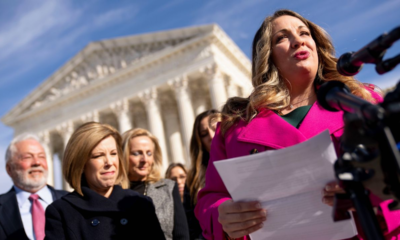Tech News
World's most valuable technology companies in 2024 – Yahoo Finance

World’s most valuable technology companies in 2024 Yahoo Finance
source
Tech News
Reaction to Supreme Court decision in web design case – Spectrum News NY1
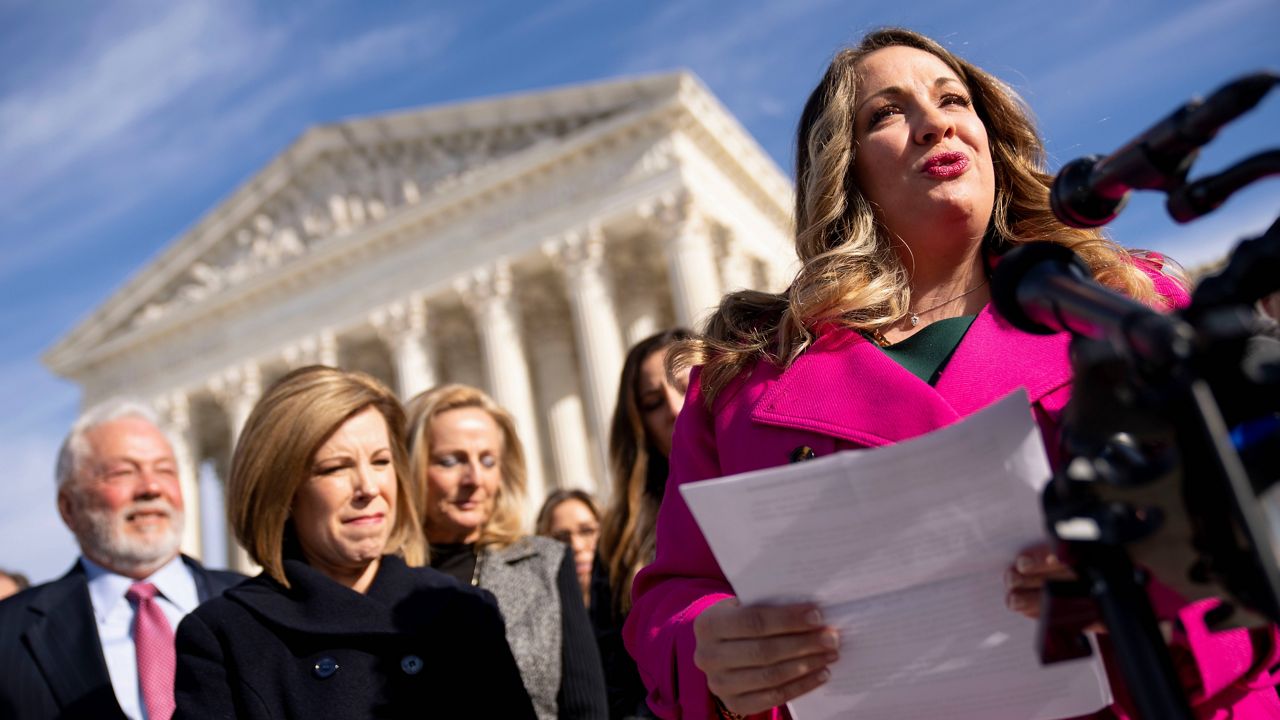
Get the best experience and stay connected to your community with our Spectrum News app. Learn More
Continue in Browser
Get hyperlocal forecasts, radar and weather alerts.
Please enter a valid zipcode.
Save
Democrats and LGBTQ+ advocates on Friday condemned a Supreme Court decision siding with a Colorado web designer who argued she should be able to refuse to build wedding websites for same-sex couples. Republicans, meanwhile, praised the ruling as a victory for religious freedom.
In a 6-3 decision, the court ruled that a Colorado law that forbids businesses open to the public from discriminating against gay people violated web designer Lorie Smith’s free-speech rights. Smith, who owns the graphic design firm 303 Creative, argued that working with same-sex couples would go against her Christian faith.
President Joe Biden called the ruling “disappointing” because he said it undermines that “no person should face discrimination simply because of who they are or who they love.”
While the decision only applies to businesses that perform creative services, Biden said he fears it could “invite more discrimination against LGBTQI+ Americans.”
The president added that his administration remains committed to working with federal law enforcement to protect Americans from discrimination based on gender identity or sexual orientation and will work with states to combat attempts to roll back civil rights protections.
“When one group’s dignity and equality are threatened, the promise of our democracy is threatened and we all suffer,” Biden said.
Senate Majority Leader Chuck Schumer, D-N.Y., called the ruling “a giant step backward for human rights and equal protection in the United States.”
“Refusing service based on whom someone loves is just as bigoted and hateful as refusing service because of race or religion,” he said in a statement. “And this is bigotry that the vast majority of Americans find completely unacceptable.”
Kelley Robinson, president of the Human Rights Campaign, an LGBTQ+ advocacy group, called the decision “dangerous” because it will give “some businesses the power to discriminate against people simply because of who we are.”
“People deserve to have commercial spaces that are safe and welcoming,” she said. “This decision continues to affirm how radical and out-of-touch this Court is.”
Rep. Robert Garcia, D-Calif., who is openly gay, called it “a very dark day for our community.”
“This is a devastating ruling for the LGBTQ+ community,” he said in an interview with MSNBC. “We just spent a month celebrating, trying to uplift pride. It’s already a very dark time for this community, where you have attacks happening on our community every day in Congress, in state legislatures. And to have this happen by a true extreme activist court to roll back a key protection against discriminating our community is shameful.
Rep. Bonnie Watson Coleman, D-N.J., also attacked the conservative-majority court while noting the case involved a hypothetical situation. Smith has never designed wedding websites. She argued she wants to expand her business but was concerned about running afoul of the Colorado law.
“This SCOTUS is out of control,” Coleman tweeted. “It’s now taking made up cases in order to push a radical agenda that is out of touch with the vast majority of the American people.”
Rep. Ayanna Pressley, D-Mass., meanwhile, directed a supportive tweet toward the LGBTQ community.
“Despite yet another callous ruling from this extreme Supreme Court, I want our LGBTQ siblings to know: We see you. We love you. We won’t stop fighting for you,” she wrote.
But Kristen Waggoner, president and CEO of the Alliance Defending Freedom, a conservative Christian legal advocacy group, said in a statement the Supreme Court made the right decision. ADF attorneys, including Waggoner, represented Smith in the case.
“The U.S. Supreme Court rightly reaffirmed that the government can’t force Americans to say things they don’t believe,” Waggoner said. “The court reiterated that it’s unconstitutional for the state to eliminate from the public square ideas it dislikes, including the belief that marriage is the union of husband and wife.
“Disagreement isn’t discrimination, and the government can’t mislabel speech as discrimination to censor it,” she added.
Sen. Ted Cruz, R-Texas, said laws should not compel business owners to use their speech in ways that contradict their faith.
“This law wasn’t just a threat to Christians either,” Cruz said in a statement. “Should a Muslim artist be compelled by the government to draw the image of Muhammed? Should Jewish artists be forced to create art that is antisemitic?”
On Twitter, Sen. Lindsey Graham, R-S.C., added, “Participating in commerce does not mean you should have to abandon your faith and individuals should not be compelled, by government, to act counter to their faith.”
Former Vice President Mike Pence, who is running for the Republican presidential nomination in 2024, said in a tweet, “Today Faith Won!”
“Freedom of Religion is the bedrock of our Constitution,” he wrote. “Today’s decision by the Supreme Court is a victory for the Religious Liberty of every American of every faith to live, work and worship according to their faith and conscience!
And former Ambassador to the United Nations Nikki Haley, a Republican who is also running for president, said she’s “glad we have a Supreme Court that respects our Constitution.”
“Unlike in other countries, we don’t force our citizens to express themselves in ways that conflict with their religious beliefs. It’s called the First Amendment,” Haley said in a statement.
Tech News
The man named in the Supreme Court's gay rights ruling says he didn't request a wedding website – The Associated Press

Copyright 2024 The Associated Press. All Rights Reserved.
FILE – Lorie Smith, a Christian graphic artist and website designer in Colorado, appears outside the Supreme Court in Washington, Monday, Dec. 5, 2022, after her case was heard by the Court. In a defeat for gay rights, the Supreme Court’s conservative majority ruled Friday, June 30, 2023, Smith who wants to design wedding websites can refuse to work with same-sex couples (AP Photo/Andrew Harnik, File)
FILE – Lorie Smith, a Christian graphic artist and website designer in Colorado, right, accompanied by her lawyer, Kristen Waggoner of the Alliance Defending Freedom, second from left, speaks outside the Supreme Court in Washington, Monday, Dec. 5, 2022, after her case was heard before the Supreme Court. In a defeat for gay rights, the Supreme Court’s conservative majority ruled Friday, June 30, 2023, Smith who wants to design wedding websites can refuse to work with same-sex couples. (AP Photo/Andrew Harnik, File)
FILE – Lorie Smith, a Christian graphic artist and website designer in Colorado, speaks to supporters outside the Supreme Court in Washington, Monday, Dec. 5, 2022, after having her case heard by the Court. The Supreme Court’s conservative majority has ruled a Christian graphic artist who wants to design wedding websites can refuse to work with same-sex couples. The decision is a defeat for gay rights. The court ruled 6-3 on Friday, June 30, 2023, for designer Lorie Smith despite a Colorado law barring discrimination based on sexual orientation, race, gender and other characteristics. (AP Photo/Andrew Harnik, File)
FILE – Web designer Lorie Smith is shown in her office on Nov. 7, 2022, in the southwest part of Littleton, Colo. The Supreme Court’s conservative majority has ruled a Christian graphic artist who wants to design wedding websites can refuse to work with same-sex couples. The decision is a defeat for gay rights. The court ruled 6-3 on Friday, June 30, 2023, for designer Lorie Smith despite a Colorado law barring discrimination based on sexual orientation, race, gender and other characteristics. (AP Photo/David Zalubowski, File)
FILE – Lorie Smith, a Christian graphic artist and website designer in Colorado, appears outside the Supreme Court in Washington, Monday, Dec. 5, 2022, after her case was heard by the Court. In a defeat for gay rights, the Supreme Court’s conservative majority ruled Friday, June 30, 2023, Smith who wants to design wedding websites can refuse to work with same-sex couples (AP Photo/Andrew Harnik, File)
FILE – Lorie Smith, a Christian graphic artist and website designer in Colorado, appears outside the Supreme Court in Washington, Monday, Dec. 5, 2022, after her case was heard by the Court. In a defeat for gay rights, the Supreme Court’s conservative majority ruled Friday, June 30, 2023, Smith who wants to design wedding websites can refuse to work with same-sex couples (AP Photo/Andrew Harnik, File)
FILE – Lorie Smith, a Christian graphic artist and website designer in Colorado, right, accompanied by her lawyer, Kristen Waggoner of the Alliance Defending Freedom, second from left, speaks outside the Supreme Court in Washington, Monday, Dec. 5, 2022, after her case was heard before the Supreme Court. In a defeat for gay rights, the Supreme Court’s conservative majority ruled Friday, June 30, 2023, Smith who wants to design wedding websites can refuse to work with same-sex couples. (AP Photo/Andrew Harnik, File)
FILE – Lorie Smith, a Christian graphic artist and website designer in Colorado, right, accompanied by her lawyer, Kristen Waggoner of the Alliance Defending Freedom, second from left, speaks outside the Supreme Court in Washington, Monday, Dec. 5, 2022, after her case was heard before the Supreme Court. In a defeat for gay rights, the Supreme Court’s conservative majority ruled Friday, June 30, 2023, Smith who wants to design wedding websites can refuse to work with same-sex couples. (AP Photo/Andrew Harnik, File)
FILE – Lorie Smith, a Christian graphic artist and website designer in Colorado, speaks to supporters outside the Supreme Court in Washington, Monday, Dec. 5, 2022, after having her case heard by the Court. The Supreme Court’s conservative majority has ruled a Christian graphic artist who wants to design wedding websites can refuse to work with same-sex couples. The decision is a defeat for gay rights. The court ruled 6-3 on Friday, June 30, 2023, for designer Lorie Smith despite a Colorado law barring discrimination based on sexual orientation, race, gender and other characteristics. (AP Photo/Andrew Harnik, File)
FILE – Lorie Smith, a Christian graphic artist and website designer in Colorado, speaks to supporters outside the Supreme Court in Washington, Monday, Dec. 5, 2022, after having her case heard by the Court. The Supreme Court’s conservative majority has ruled a Christian graphic artist who wants to design wedding websites can refuse to work with same-sex couples. The decision is a defeat for gay rights. The court ruled 6-3 on Friday, June 30, 2023, for designer Lorie Smith despite a Colorado law barring discrimination based on sexual orientation, race, gender and other characteristics. (AP Photo/Andrew Harnik, File)
FILE – Web designer Lorie Smith is shown in her office on Nov. 7, 2022, in the southwest part of Littleton, Colo. The Supreme Court’s conservative majority has ruled a Christian graphic artist who wants to design wedding websites can refuse to work with same-sex couples. The decision is a defeat for gay rights. The court ruled 6-3 on Friday, June 30, 2023, for designer Lorie Smith despite a Colorado law barring discrimination based on sexual orientation, race, gender and other characteristics. (AP Photo/David Zalubowski, File)
FILE – Web designer Lorie Smith is shown in her office on Nov. 7, 2022, in the southwest part of Littleton, Colo. The Supreme Court’s conservative majority has ruled a Christian graphic artist who wants to design wedding websites can refuse to work with same-sex couples. The decision is a defeat for gay rights. The court ruled 6-3 on Friday, June 30, 2023, for designer Lorie Smith despite a Colorado law barring discrimination based on sexual orientation, race, gender and other characteristics. (AP Photo/David Zalubowski, File)
DENVER (AP) — A Colorado web designer who the U.S. Supreme Court ruled Friday could refuse to make wedding websites for gay couples cited a request from a man who says he never asked to work with her.
The request in dispute, from a person identified as “Stewart,” wasn’t the basis for the federal lawsuit filed preemptively seven years ago by web designer Lorie Smith, before she started making wedding websites. But as the case advanced, it was referenced by her attorneys when lawyers for the state of Colorado pressed Smith on whether she had sufficient grounds to sue.
The revelation distracts from Smith’s victory at a time when she might have been basking in her win, which is widely considered a setback for gay rights.
Smith named Stewart — and included a website service request from him, listing his phone number and email address in 2017 court documents. But Stewart told The Associated Press he never submitted the request and didn’t know his name was invoked in the lawsuit until he was contacted this week by a reporter from The New Republic, which first reported his denial.
“I was incredibly surprised given the fact that I’ve been happily married to a woman for the last 15 years,” said Stewart, who declined to give his last name for fear of harassment and threats. His contact information, but not his last name, were listed in court documents.
He added that he was a designer and “could design my own website if I need to” — and was concerned no one had checked into the validity of the request cited by Smith until recently.
Smith’s lawyer, Kristen Waggoner, said at a Friday news conference that the wedding request naming Stewart was submitted through Smith’s website and denied it was fabricated.
She suggested it could have been a troll making the request, something that’s happened with other clients she has represented. In 2018 her client Colorado baker Jack Phillips won a partial U.S. Supreme Court victory after refusing to make a gay couple’s wedding cake, citing his Christian faith.
“It’s undisputed that the request was received,” Waggoner said. “Whether that was a troll and not a genuine request, or it was someone who was looking for that, is really irrelevant to the case.”
Colorado Attorney General Phil Weiser on Friday called the lawsuit a “made up case” because Smith wasn’t offering wedding website services when the suit was filed.
Weiser didn’t know the specifics of Stewart’s denial, but said the nation’s high court should not have addressed the lawsuit’s merits “without any basis in reality.”
About a month after the case was filed in federal court challenging an anti-discrimination law in Colorado, lawyers for the state said Smith had not been harmed by the law as they moved to dismiss the case.
Her lawyers maintained Smith did not have to be punished for violating the law before challenging it. In February 2017 they said even though she did not need a request in order to pursue the case, she had received one.
“Any claim that Lorie will never receive a request to create a custom website celebrating a same-sex ceremony is no longer legitimate because Lorie has received such a request,” they said.
Smith’s Supreme Court filings briefly mentioned she received at least one request to create a website celebrating the wedding of a same-sex couple. There did not appear to be any reference to the issue in the court’s decision.
Associated Press researcher Rhonda Shafner contributed to this report from New York.
Copyright 2024 The Associated Press. All Rights Reserved.
Tech News
Supreme Court Backs Web Designer Opposed to Same-Sex Marriage – The New York Times
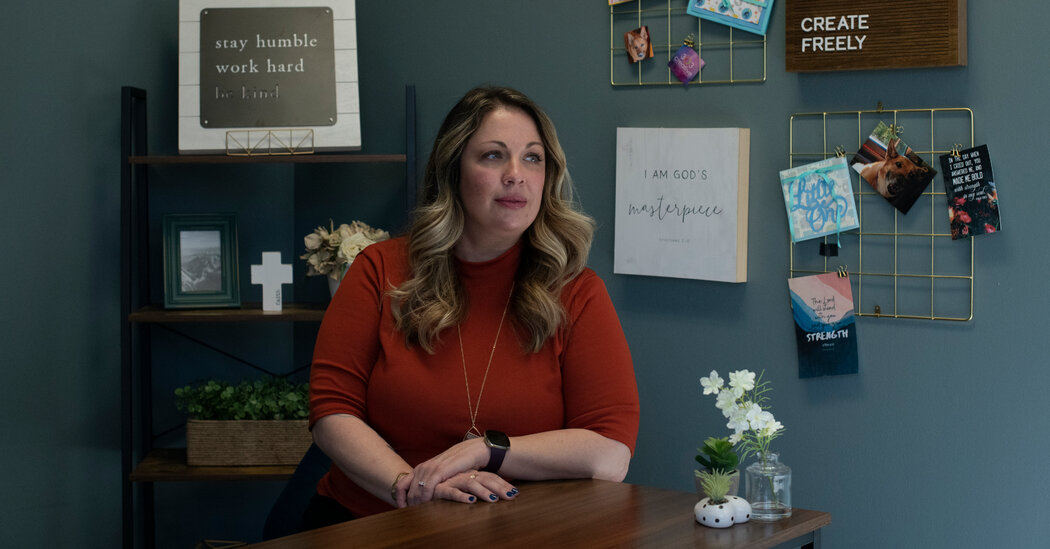
Advertisement
The justices settled a question left open in 2018: whether businesses open to the public and engaged in expression may refuse to serve customers based on religious convictions.
Abbie VanSickle and
Reporting from Washington
The Supreme Court sided on Friday with a web designer in Colorado who said she had a First Amendment right to refuse to design wedding websites for same-sex couples despite a state law that forbids discrimination against gay people.
Justice Neil M. Gorsuch, writing for the majority in a 6-3 vote, said that the First Amendment protected the designer, Lorie Smith, from being compelled to express views she opposed.
“A hundred years ago, Ms. Smith might have furnished her services using pen and paper,” he wrote. “Those services are no less protected speech today because they are conveyed with a ‘voice that resonates farther than it could from any soapbox.’”
The case, though framed as a clash between free speech and gay rights, was the latest in a series of decisions in favor of religious people and groups, notably conservative Christians.
The decision also appeared to suggest that the rights of L.G.B.T.Q. people, including to same-sex marriage, are on more vulnerable legal footing, particularly when they are at odds with claims of religious freedom. At the same time, the ruling limited the ability of governments to enforce anti-discrimination laws.
The justices split along ideological lines, and the two sides appeared to talk past each other. The majority saw the decision as a victory that safeguarded the First Amendment right of artists to express themselves. The liberal justices viewed it as something else entirely — a dispute that threatened societal protections for gay rights and rolled back some recent progress.
We are having trouble retrieving the article content.
Please enable JavaScript in your browser settings.
Thank you for your patience while we verify access. If you are in Reader mode please exit and log into your Times account, or subscribe for all of The Times.
Thank you for your patience while we verify access.
Already a subscriber? Log in.
Want all of The Times? Subscribe.
Advertisement
-

 General Knowledge2 years ago
General Knowledge2 years agoList of Indian States and Capital
-

 General Knowledge2 years ago
General Knowledge2 years agoList Of 400 Famous Books and Authors
-
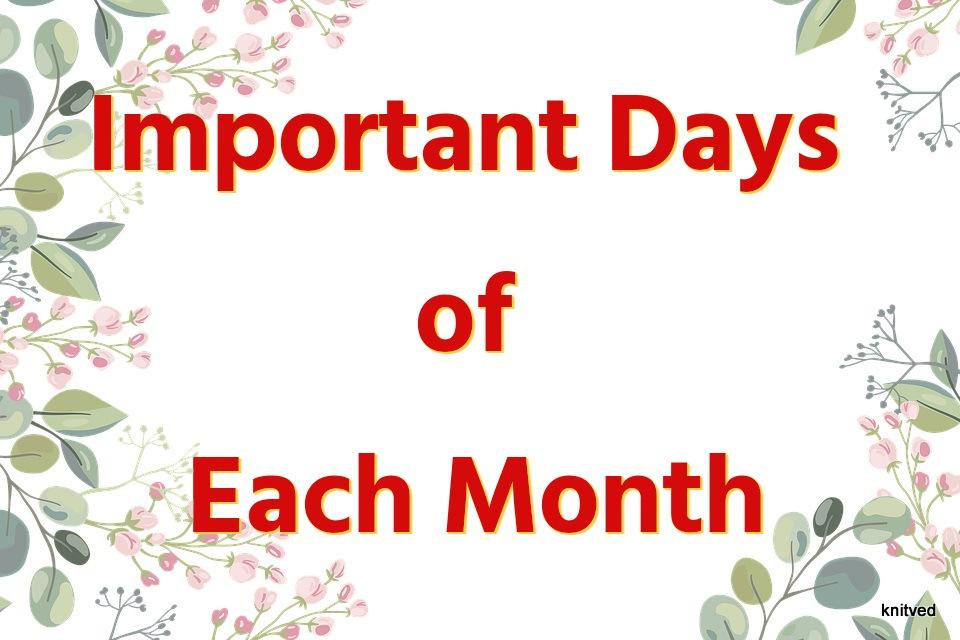
 Important Days4 years ago
Important Days4 years agoImportant Days of Each Month
-

 General Knowledge2 years ago
General Knowledge2 years agoCountries and their National Sports
-

 General Knowledge3 years ago
General Knowledge3 years agoCountry Capital and Currency
-

 Important Days3 years ago
Important Days3 years agoHoli
-

 General Knowledge2 years ago
General Knowledge2 years agoList of Indian President
-
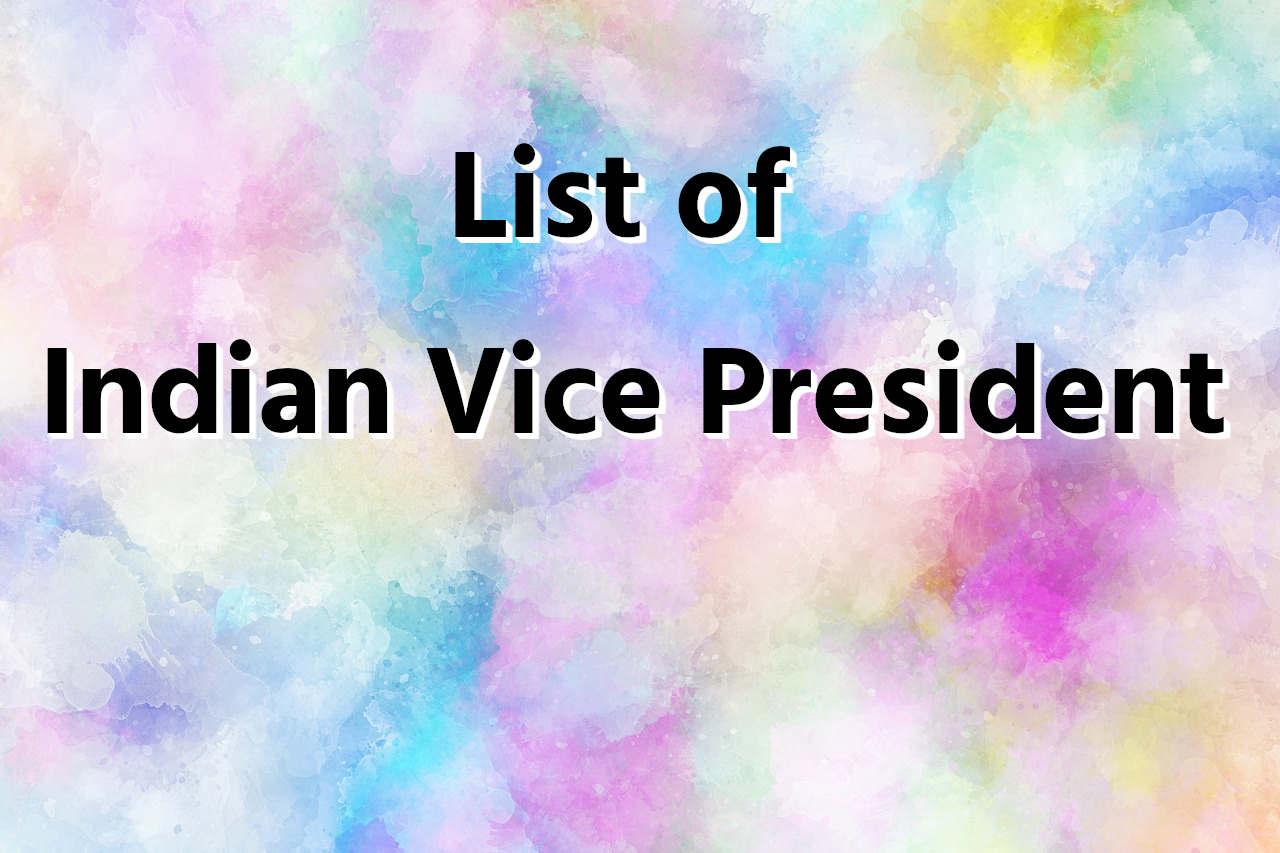
 General Knowledge2 years ago
General Knowledge2 years agoList of Indian Vice President


